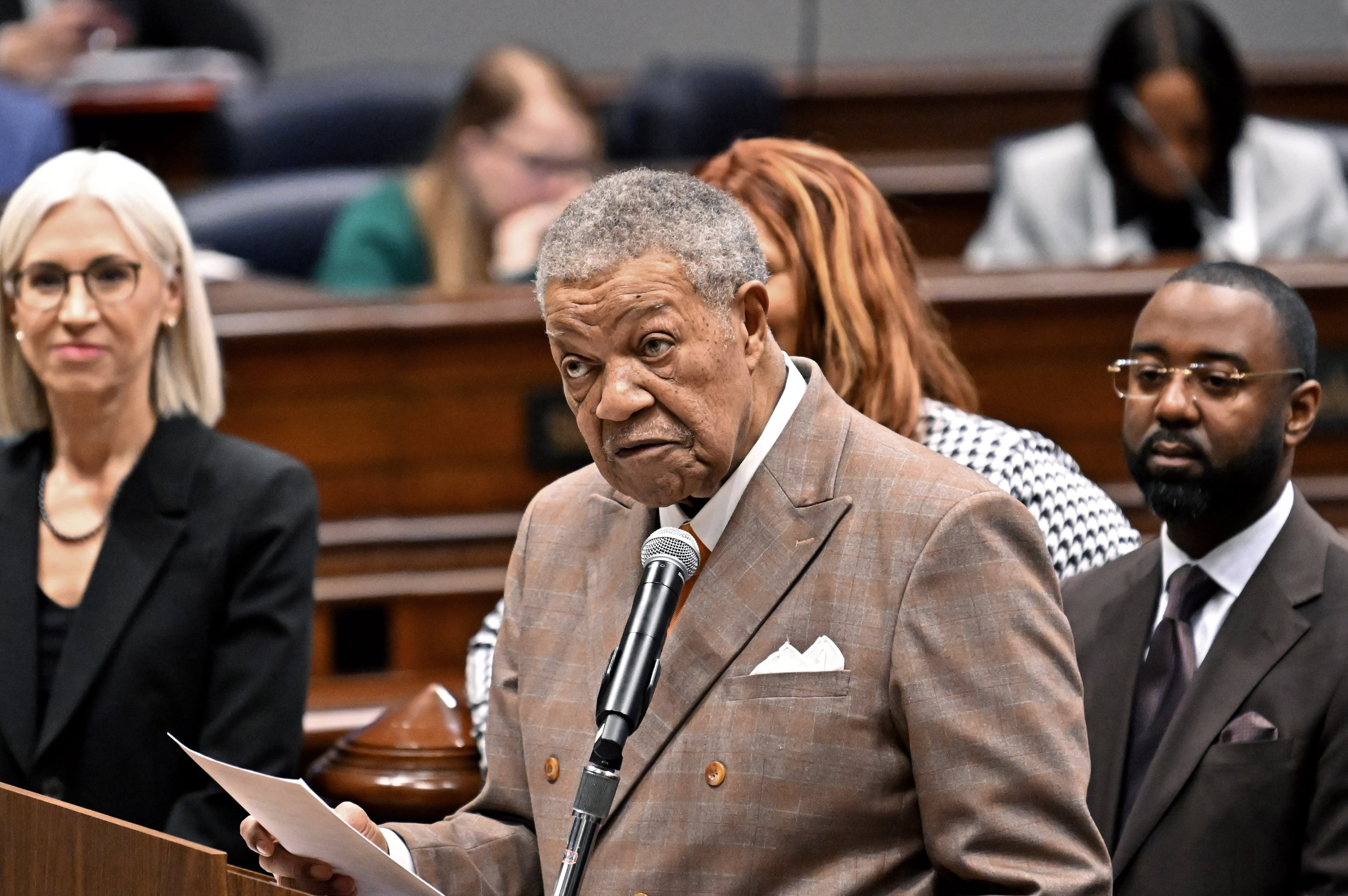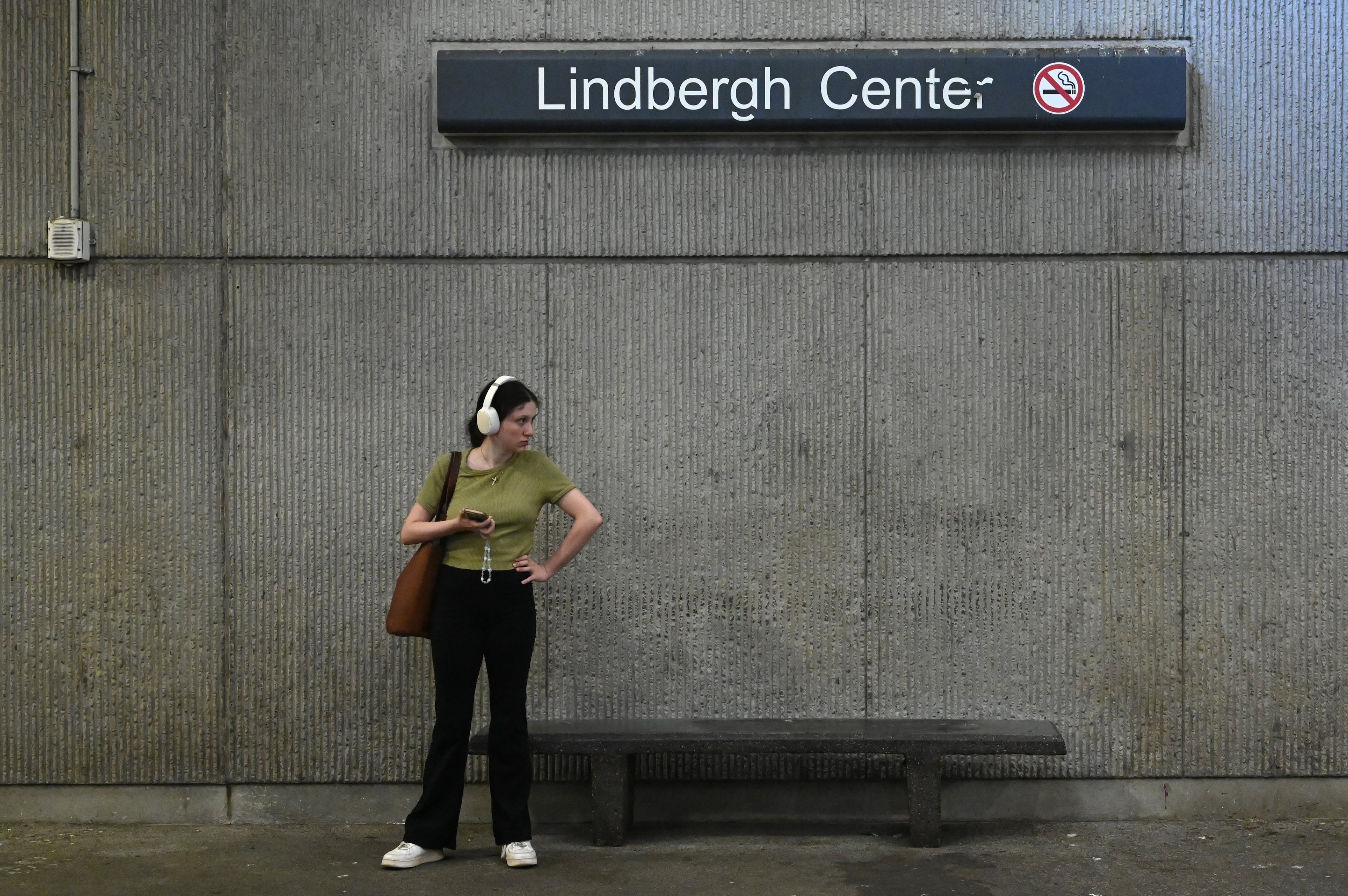DIGGING DEEPER: Georgia law bars limiting of gun sales during pandemic

Gov. Brian Kemp's executive order instructing Georgians to shelter at home to stem the spread of COVID-19 beginning Friday made it clear that the sale of guns and ammunition will not be banned — state law won't allow it.
“Nothing in this order shall be construed to suspend or limit the sale, dispensing, or transportation of firearms, or any component thereof,” the order states.
The law passed in 2014 was part of sweeping changes that also removed guns and ammunition from provisions that allow a governor to ban the sale of alcohol, explosives or combustibles — as long as those "explosives" and "combustibles" are not guns or ammunition. The legislation also vastly expanded where Georgians with a carry license can legally take firearms, including schools, bars and most government buildings.
The General Assembly exempted the state Capitol.
>>MORE: A map of coronavirus cases in Georgia
>>MORE: Real-time stats and the latest news on the coronavirus outbreak
Georgians have been stocking up on guns and ammunition while grappling with fears over the coronavirus, with gun dealers saying they've seen a huge spike in sales since the seriousness of the pandemic set in. Shop owners say plenty of regular customers have shown up to stockpile supplies, but the biggest surge has been from first-time "panic buyers" wary of what the near future may bring.
State Rep. Alan Powell, a Hartwell Republican and gun rights supporter, said pandemic or not, people who want to purchase guns should be able to do so.
“The constitutional right of the Second Amendment is just that — it is a constitutional right,” he said. “You don’t suspend the Constitution during an emergency, or at any time, for obvious reasons.”
Shannon Lawhon, a volunteer from Athens with the gun control group Moms Demand Action, said she worries those sales could lead to an increase in domestic violence-related killings.
“It’s bad enough that lawmakers in Georgia removed the ability to make decisions about firearm sales — but it’s even worse that lawmakers have given no protection to domestic abuse victims in a time where increased gun sales and shelter-in-place orders have put them at higher risk,” Lawhon said.
Experts say being in close quarters at home can increase the chances of abuse. Kemp on Thursday noted one hospital’s documentation of a recent 15% increase in domestic violence cases.
Other states have shuttered gun stores, leading the National Rifle Association to sue the governor's of California and New York for deeming the businesses as nonessential. The U.S. Department of Homeland Security this week issued guidance urging state and local governments to consider gun stores as essential services allowed to operate under any emergency declarations.
Kemp’s executive order doesn’t distinguish between “essential” and “nonessential” businesses.
>>Related: Georgia doctors plan for wrenching choices amid slim ventilator supply
>>More: Complete coronavirus coverage
Jerry Henry, the executive director of the gun rights group Georgia Carry, said his organization pushed for the 2014 law’s passage because in times of emergency, people want to know they can protect themselves and their homes.
“To me, its pretty simple,” Henry said. “When you have a declared emergency, it’s going to be during a blizzard, during a tornado or hurricane — some kind of nasty thing that’s happened to everybody — and the first responders won’t be able to get around to protect anybody. It’s going to be up to you to protect yourself.”
But state Sen. Elena Parent, an Atlanta Democrat, said the 2014 law is indicative of what she called an "obsessive mindset" toward protecting access to guns.
“This goes back to this notion always pushed by gun enthusiasts that guns should be treated like a sacred object as opposed to something that is mortal and can be regulated like everything else,” she said. “The proponents believe it’s essential — like food and water.”
Parent said she doesn’t think more guns will make dealing with the pandemic any safer.
“Do I think people taking matters into their own hands is going to be corrective or helpful? Not at all,” she said. “It’s going to make it worse and make law enforcement’s job harder.”



